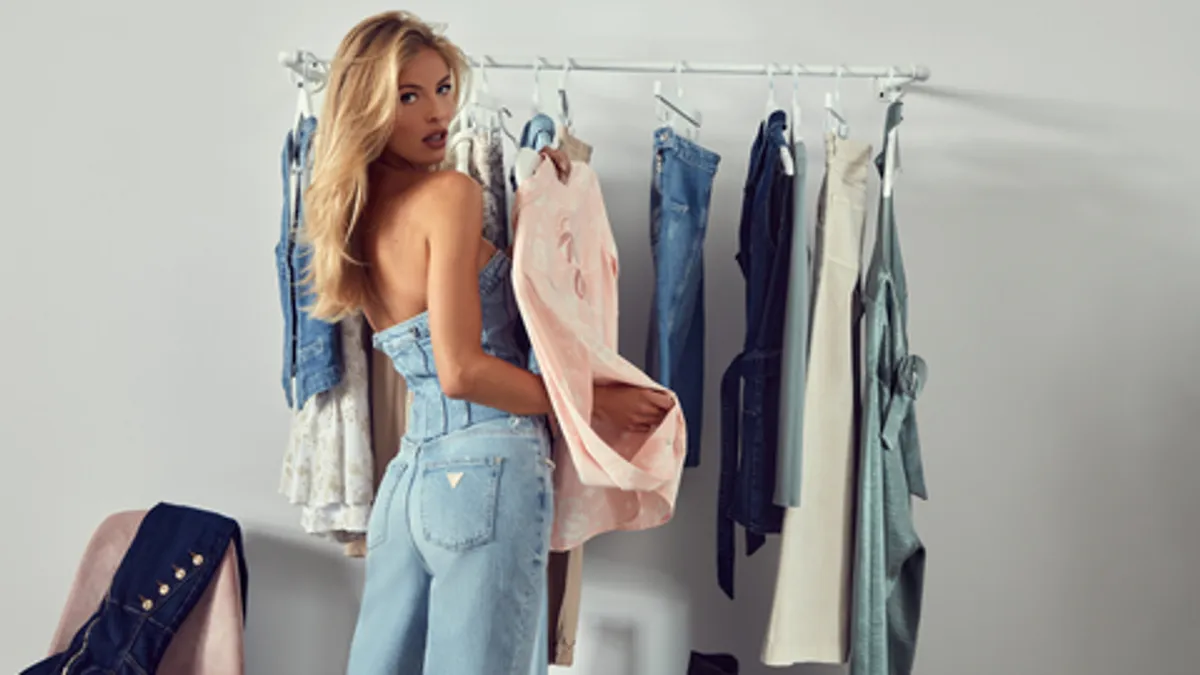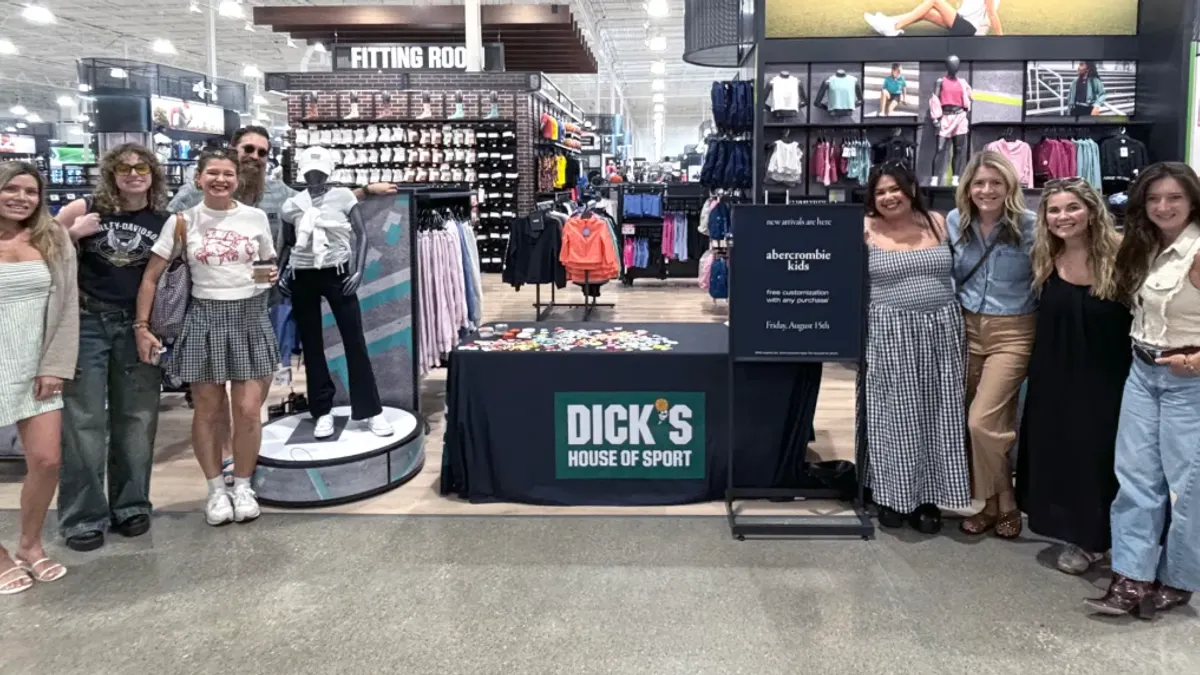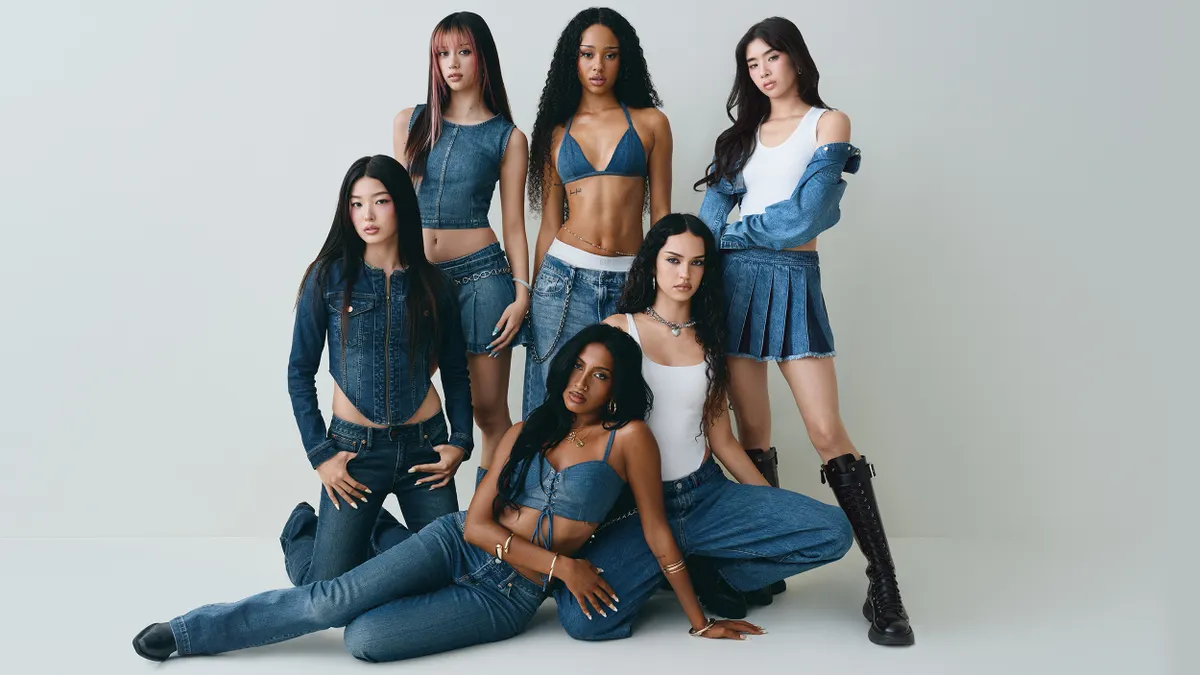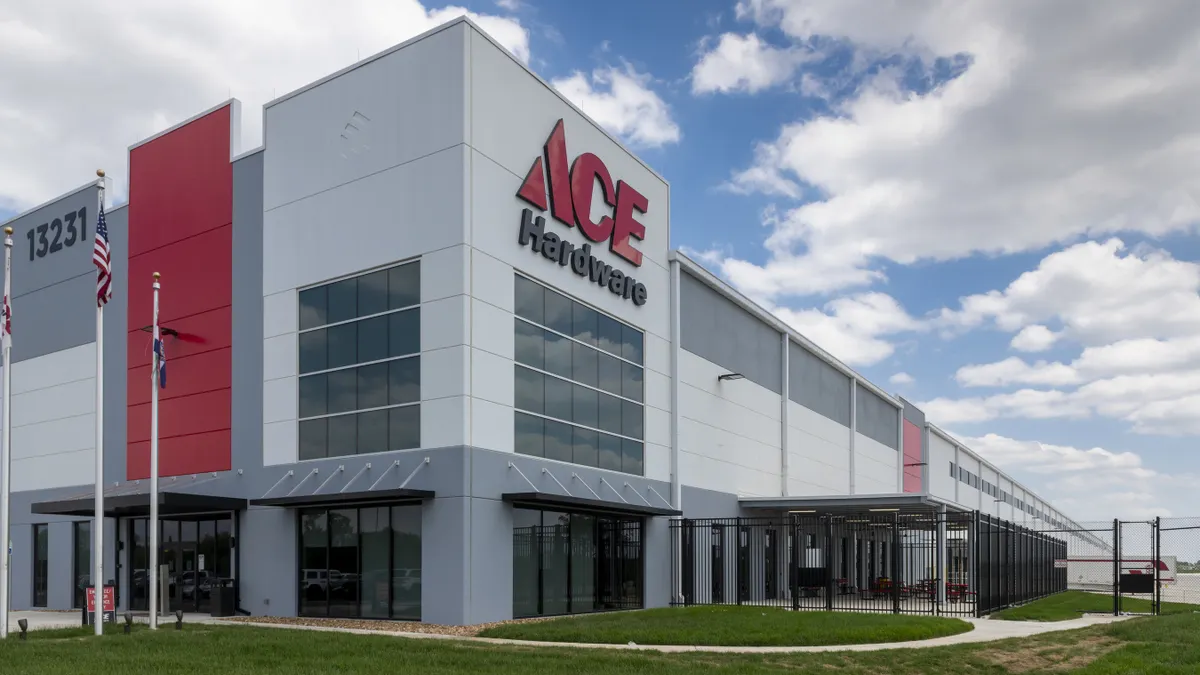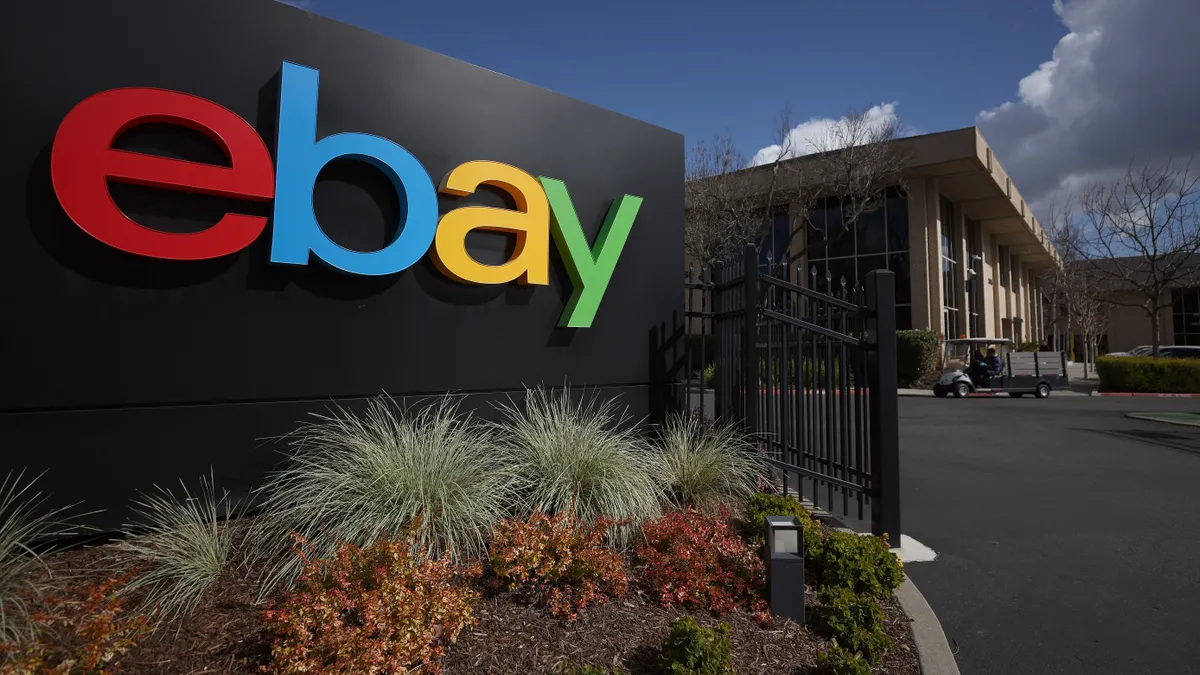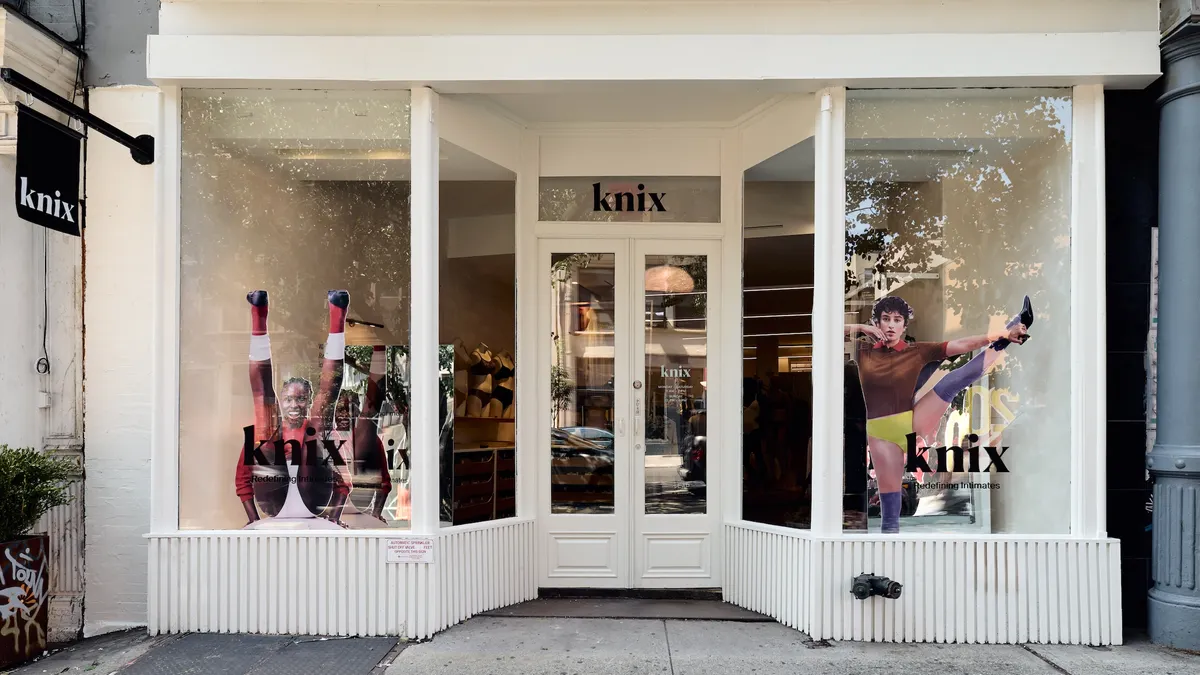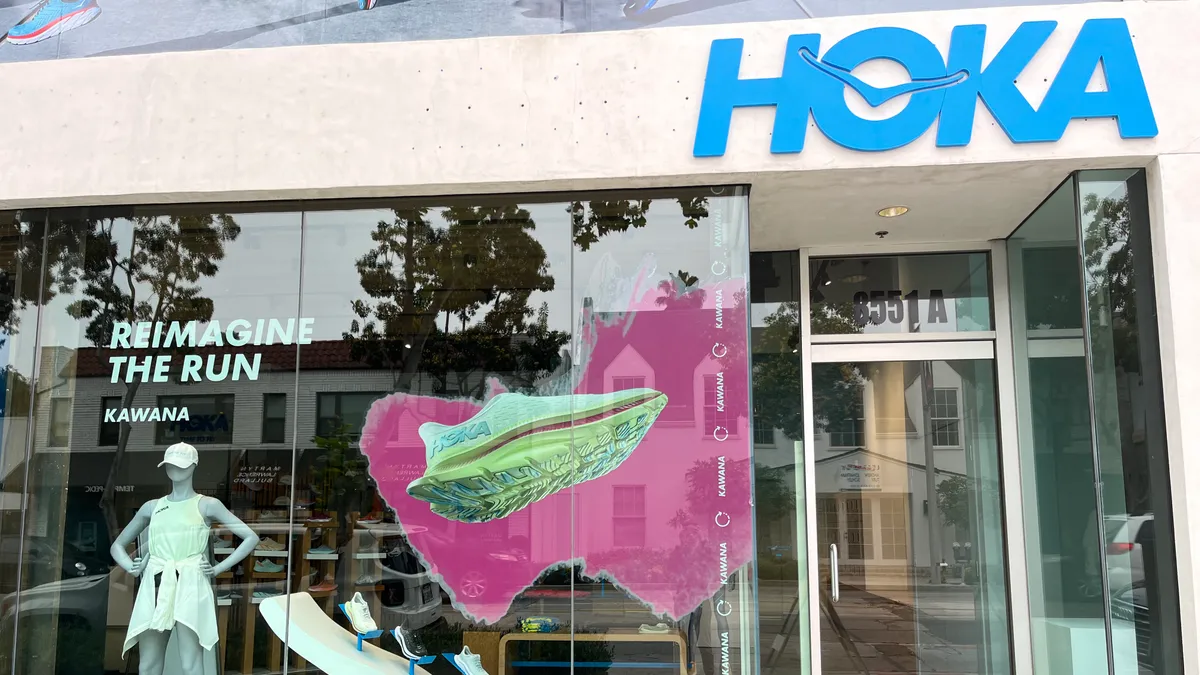The story of Cinderella teaches many morals: wealth isn't everything, kindness wins hearts and, most importantly, never underestimate the power of shoes. Though these days, it's not heels that are winning consumers' hearts — it's sneakers.
While the footwear market as a whole grew only 13% in 2017, sports footwear grew by an astonishing 46%, according to data from Euromonitor International. That covers performance, outdoor and sports-inspired footwear, and those categories are poised to continue growing in the years to come.
Indeed, Michelle Grant, head of retail at Euromonitor International, pegs sports footwear at 20% growth over the next five years, compared to 10% growth for the category as a whole. Notably, performance footwear is experiencing the fastest growth in the sports footwear market — that is, the category where you'd find Nike's Air Jordans, which have arguably become more of a fashion statement than a basketball shoe.
"In a category that's not performing very well, that's a lot of money that you could be leaving on the table if you're not executing well in basically the fastest growing category in footwear."

Michelle Grant
Head of Retail at Euromonitor International
The massive popularity of the sneaker market, underscored particularly well by the sold-out Snapchat pre-release of Nike's Air Jordans, has made it a must-have for virtually any retailer selling footwear, according to Grant.
"In a category that's not performing very well," Grant said, noting footwear's low growth rate, "that's a lot of money that you could be leaving on the table if you're not executing well in basically the fastest growing category in footwear."
How athleisure and men are driving sneaker sales
It's hard to look at the sneaker boom without seeing a correlation in the growth of the athleisure market, which itself is the catalyst for much of the success athletics retailers have enjoyed. The fact that consumers are more interested in adopting a sporty lifestyle, consistent with the messaging of brands like Outdoor Voices and Lululemon, has done much to turn sportswear into everyday wear.
Sneakers are also an easy entryway into the athleisure market in general, as just about anywhere with a footwear department can cash in on the popular fashion trend, and even retailers that have traditionally been more performance-focused, like Mizuno, are transitioning to streetwear styles.
Then there's the streetwear element of it all, which is also growing in popularity. In fact, a Piper Jaffray study in October found that teen shoppers were turning increasingly toward brands like Adidas and Puma to capture the "1990s retro look" — and away from Nike, which has struggled recently in the U.S.
The sneaker boom is "really about a look, a lifestyle, today more than anything."

Matt Powell
Vice President and Senior Industry Analyst at the NPD Group
"I think the footwear trend has mirrored what's happened in athleisure apparel," Matt Powell, vice president and senior industry analyst at the NPD Group, told Retail Dive. "In athleisure apparel, people were buying clothes that looked like they were functional but maybe weren't — but they look the part — and I think we're starting to see the same thing happen in footwear."
Powell notes that sales of sneakers outpace both dress and casual shoes combined, and that it's "really about a look, a lifestyle, today more than anything." And indeed — it's hard to visualize the athleisure trend of leggings, yoga pants and track pants without an appropriately sporty pair of sneakers to tie it all together.
That consumer interest has sparked a huge amount of investment from retailers, including new luxury sneaker lines from the likes of Lululemon, Adidas and Under Armour, and a big investment from LVMH in sneaker startup Stadium Goods. That's not to mention the recent merger between GOAT and Flight Club, two companies that cater to the sneakerhead community at large.
While Nike is banking on women to drive sneaker innovation going forward, the genre tends to be more male-dominated, as that's arguably where the ‘sneakers as everyday shoes' trend originated, and Grant goes so far as to call sneakers an "iconic piece" of menswear these days.
"It's a status symbol."

Michelle Grant
Head of Retail at Euromonitor International
"It's a status symbol," Grant said. "It reflects that you're in the know, that you're aligned with certain celebrities that reflect your lifestyle — and of course the price tags tend to be very high, which also indicates that you're affluent or aspire to be."
And men, in particular, are willing to spend a premium for shoes that fit the bill, as evidenced by Under Armour's Hovr line, which retails for between $130 and $140 and has had an impressive start out of the gates. It also doesn't hurt that sneaker-heavy brands have a history of dropping limited-edition collections with celebrities, which has, in turn, become a huge driver of demand.
Taking sneaker culture mainstream
Under Armour has Steph Curry, Puma has Rihanna and Adidas has Pharrell Williams and Kanye West, among others. Just about every sneaker brand has a long-term celebrity partnership or two, not to mention limited-edition collaborations that drop in carefully-planned installments to drive consumer interest and resultant sales.
Part of the reason that model is so successful is that younger generations are turning to more personalized, unique products and experiences. Indeed, over the holidays, a study by Yes Lifecycle Marketing found that 35% of Gen Zers were looking for personalized gifts, while the NRF found that 84% of the generation followed personalized retailer recommendations. This uniqueness has become par for the course, really, with 71% of consumers admitting they were frustrated by impersonal shopping experiences.
"These influences of the hip hop culture, the skate culture and other celebrity culture are really becoming the mainstream curators of what's cool and that's translated into footwear."

Michelle Grant
Head of Retail at Euromonitor International
"There's a lot of interest today in very exclusive products," Powell said. "You have the younger consumer, who's very concerned about being unique … and having a product that others don't have — and they're willing to pay a premium for that."
It's not just sneakers Gen Z's will pay more for — the group is more likely than millennials to shop at several luxury retailers, although sneakers are only a recent addition to the luxury retail realm. According to Grant, the sneaker craze used to be isolated to a select group of sneakerhead aficionados, with brands collaborating with celebrities that meant a lot in the sneaker world, but not really anywhere else. Lately, that's changed, as brands have reached out to different celebrities and acquired customers outside of the sneaker fan culture.
"It started when brands reached out to non-traditional spokespeople," Grant said, discussing the shift from sneaker celebrities and athletes to other pop culture icons like Kanye West and Rihanna. "These influences of the hip hop culture, the skate culture and other celebrity culture are really becoming the mainstream curators of what's cool and that's translated into footwear."
The focus on limited-edition collections has also wrought changes in the product cycle of sneaker manufacturers. A year ago, for example, Adidas announced it was planning to focus on fast fashion and accelerating its supply chain, while Nike made a similar statement in June, saying it hoped to cut product cycle times in half.
"The world is really flat right now. The kids, no matter where they live in the world, know what's going on in the sneaker market."

Matt Powell
Vice President and Senior Industry Analyst at the NPD Group
That leaves more room for brands to innovate, produce and release limited-edition sneaks, dropping them "much like a hip hop artist might drop a mixtape," Grant notes. From that point on, brands rely on the exclusivity of the product and the resultant social media buzz to drive premium price tags.
"The world is really flat right now," Powell said. "The kids, no matter where they live in the world, know what's going on in the sneaker market, know what the hot styles are — and I think that also was fueling a lot of the growth. It's just so ubiquitous as a look."
When suppliers can be choosers
All that success is giving brands a lot of choices in terms of distribution channels — or, when it comes to Amazon, not a lot of choice. While there are certainly plenty of platforms to sell on, Amazon's impressive share of online apparel spend, along with the draw of its free shipping and other Prime member perks has many brands turning to the e-commerce company to sell direct-to-consumer.
Among those is Nike, which caused waves last summer when the company announced it would be selling on Amazon, a partnership that has gone so well for the brand that Nike actually expanded it in December, causing concern at more traditional retail partners like Foot Locker, Finish Line and Dick's Sporting Goods.
"They're the largest online retailer of sneakers," Powell said of Amazon, "so when the largest brand in the space decides to sell there directly, it creates a potential threat for all of their conventional wholesale partners."
That being said, Foot Locker has been holding its own against Amazon, and it could actually be department stores and mass merchants who have more to fear from the shift to e-commerce. At Nike's 2017 Investors Day in October, the company made a point of saying it would be investing in the "right strategic retail partners" and "shifting away" from retailers that don't offer a differentiated experience.
"You have the suppliers putting pressure on their retailers to improve their business and differentiate themselves and if you don't, you're probably going to lose out on product exclusives."

Michelle Grant
Head of Retail at Euromonitor International
"It lacks superior consumer experiences in either physical or digital … and that makes it less profitable over time as the consumers migrate away," Trevor Edwards, president of Nike brand said, according to a transcript.
That could spell trouble for retailers struggling with excess inventory, as it often leads to major discounting, which can hurt the brand cache of suppliers. Grant warns that sports brands will likely be more diligent about which retail partners are adding real value for them in the future, citing Nike's partnership with Stitch Fix as a good example of a value proposition that will win with athletics brands going forward.
"You have the suppliers putting pressure on their retailers to improve their business and differentiate themselves and if you don't, you're probably going to lose out on product exclusives," Grant said, noting that the merchandise these partners will lose out on would normally help them fight against the rise of e-commerce.
So if falling traffic and rising bankruptcy rates aren't good enough reasons to convince department stores to up their in-store game, it might be time to add "sneakers" to the list.







